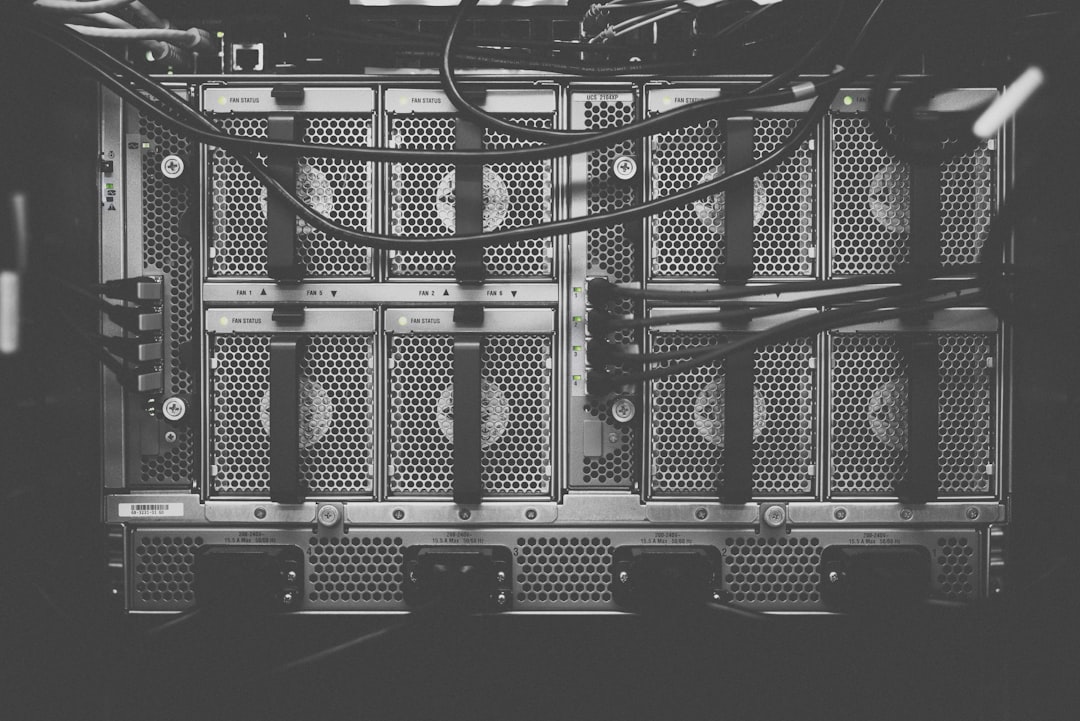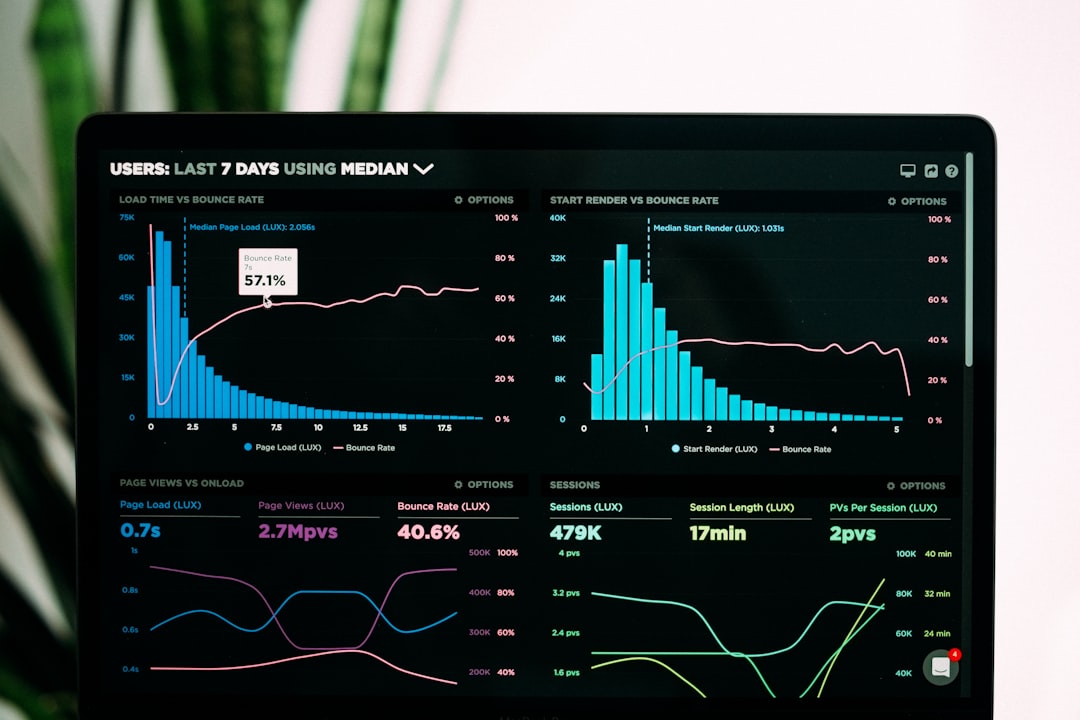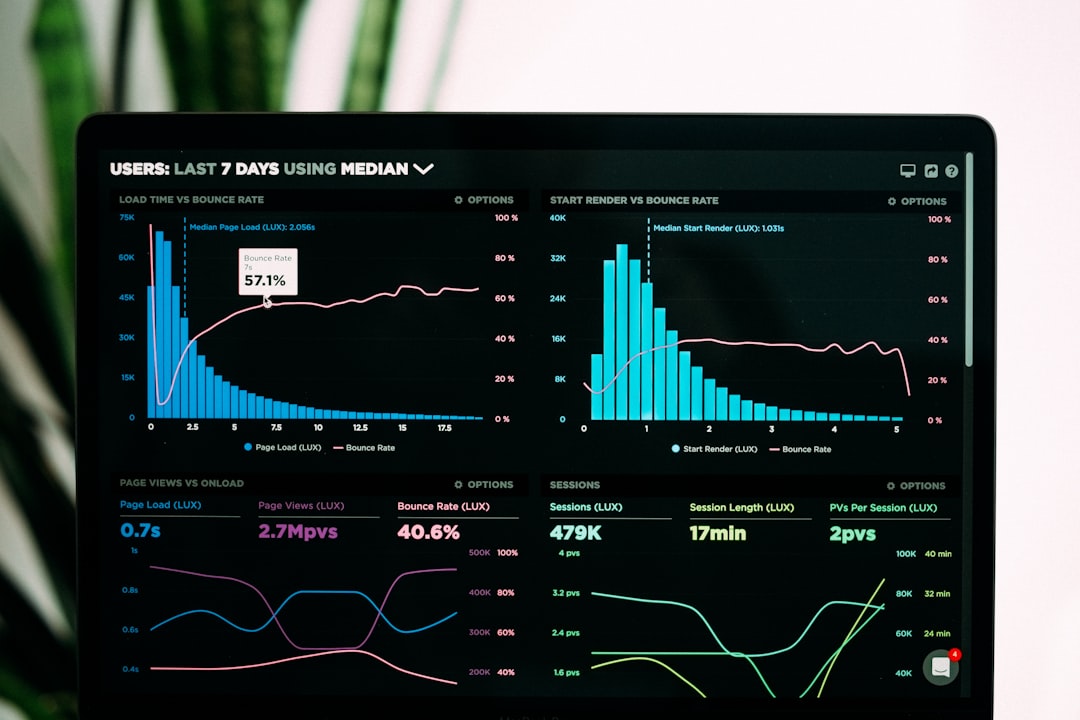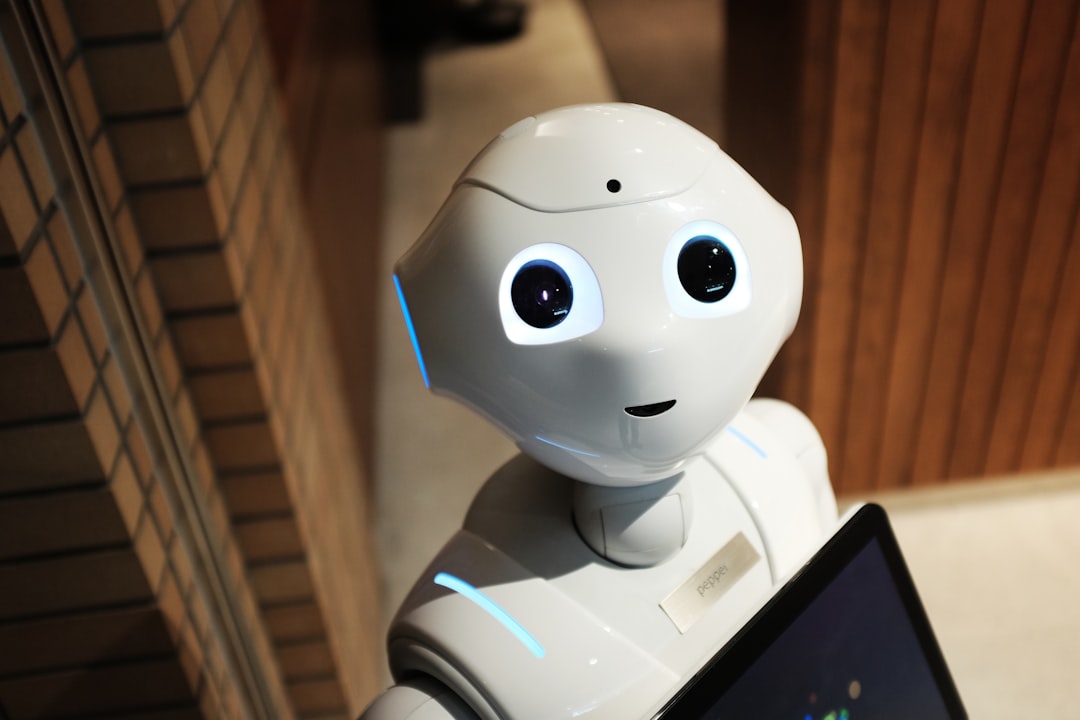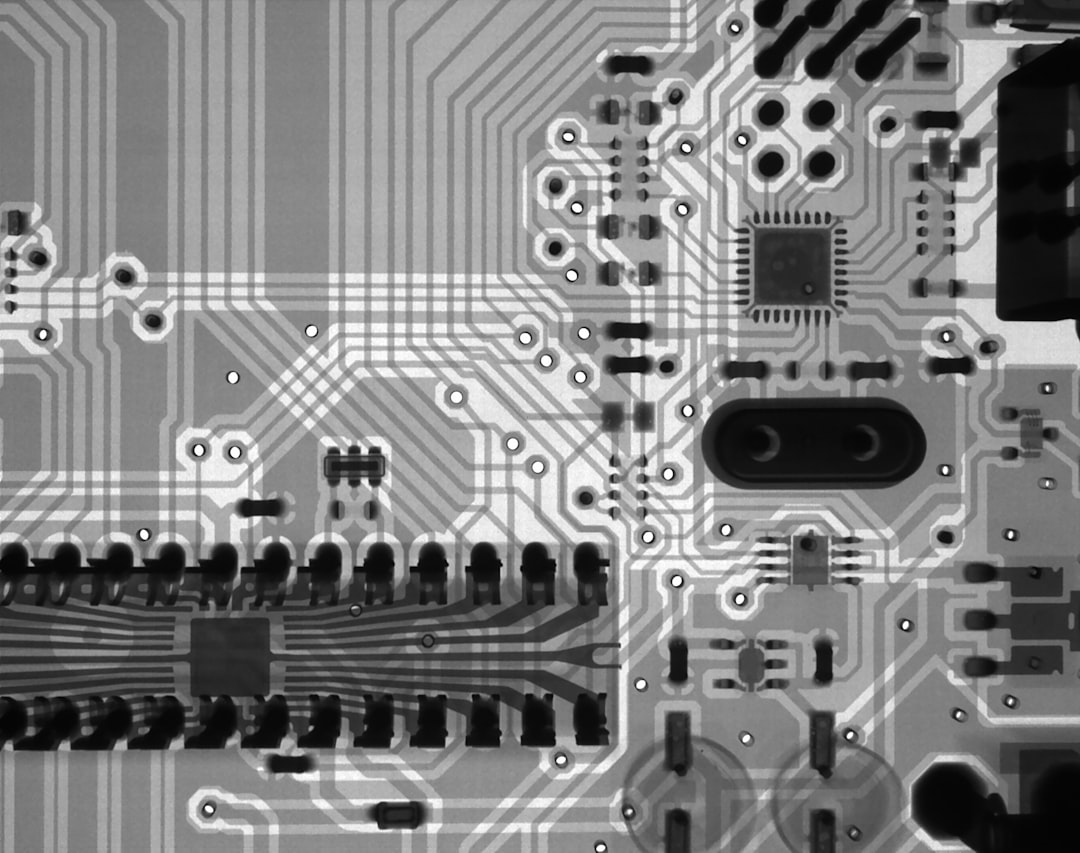Unlock encrypted content
Please enter your SSCE key to initiate on-the-fly decryption.
Decryption key: (Click cancel if you don't have the key)
Copied link to clipboard.
This feature is unavailable for free accounts. Upgrade now and enjoy all Premium benefits.
Go Premium!
This feature is unavailable for free accounts. Upgrade now and enjoy all Premium benefits.
Go Premium!
Please open this page in browser ( Google Chrome or Safari ) to use this feature.
Open In Browser
Integrating the Future: Machine Learning, Quantum Computing, and Renewable Energy Technology
Random related video for this blog.
Copied share link to clipboard.
These cutting-edge advancements are shaping the future and paving the way for a more sustainable and efficient world. In this article, we will explore the potential of these technologies and their impact on various industries.
Machine Learning: Unleashing the Power of Data
Machine learning, a subset of artificial intelligence, is transforming industries by enabling computers to learn and make predictions or decisions without being explicitly programmed. With the ability to analyze vast amounts of data, machine learning algorithms can identify patterns and trends that humans may overlook. This technology is being applied in various sectors, including healthcare, finance, retail, and transportation. In healthcare, machine learning algorithms are being used to diagnose diseases, predict patient outcomes, and improve treatment plans. For example, researchers at Stanford University developed a machine learning algorithm that can detect skin cancer with a level of accuracy comparable to dermatologists. This breakthrough has the potential to improve early detection rates and save lives. In the finance industry, machine learning algorithms are being employed to detect fraudulent transactions, predict market trends, and automate trading strategies. These algorithms can analyze large volumes of financial data to identify patterns that indicate potential fraud or market opportunities. This technology has the potential to reduce financial losses and improve investment strategies.Quantum Computing: Unlocking the Power of Quantum Mechanics
Quantum computing is a rapidly evolving field that harnesses the principles of quantum mechanics to process information in ways that are unimaginable with classical computers. Unlike classical computers that use bits to represent information as either 0 or 1, quantum computers use quantum bits or qubits, which can exist in multiple states simultaneously. This allows quantum computers to perform complex calculations at an unprecedented speed. One of the most promising applications of quantum computing is in cryptography and data security. Quantum computers havethe potential to crack current encryption algorithms, which could pose a significant threat to sensitive data. However, they also offer the possibility of developing secure encryption methods that are resistant to quantum attacks. Researchers are actively working on developing quantum-resistant encryption algorithms to ensure the security of data in the future. Quantum computing also has the potential to revolutionize drug discovery and optimization. The process of designing new drugs is time-consuming and expensive, often requiring years of research and testing. Quantum computers can simulate molecular interactions and properties, enabling researchers to accelerate the drug discovery process. This could lead to the development of new treatments for diseases and significantly reduce the time and cost associated with drug development.
Renewable Energy Technology: Building a Sustainable Future
Renewable energy technology is gaining momentum as the world seeks to transition from fossil fuels to more sustainable sources of energy. Solar, wind, hydro, and geothermal energy are just a few examples of renewable energy sources that can reduce greenhouse gas emissions and combat climate change. Solar energy is one of the fastest-growing renewable energy sources, with advancements in solar panel technology making it more efficient and affordable. The use of artificial intelligence and machine learning in solar panel design and optimization has significantly improved their performance. These technologies can analyze weather patterns, energy consumption data, and other factors to optimize the placement and angle of solar panels, maximizing energy production. Wind energy is another rapidly growing renewable energy source. Machine learning algorithms can analyze wind patterns and turbine data to optimize the performance of wind farms. By predicting wind speeds and directions, these algorithms can adjust the orientation and speed of wind turbines to generate more electricity. This technology has the potential to increase the efficiency of wind energy production and reduce costs.Secure File Locking and Unlocking: Protecting Your Data
As technology advances, the need for secure file locking and unlocking becomes increasingly important. With the rise of cloud-based file storage and sharing, ensuring the privacy and security of sensitive data is paramount. Secure file locking and unlocking mechanisms provide an extra layer of protection to prevent unauthorized access to files. FileLu, a leading cloud storage provider, offers robust file locking and unlocking features to safeguard your data. With end-to-end encryption and secure access controls, FileLu ensures that only authorized users can access and modify your files. Whether you are sharing files with colleagues or storing confidential information, FileLu's secure file locking and unlocking capabilities give you peace of mind.Cloud-Based File Editing: Collaborate Anytime, Anywhere
Cloud-based file editing is revolutionizing the way we collaborate and work on documents. Gone are the days of sending files back and forth via email or USB drives. With cloud-based file editing, multiple users can work on the same document simultaneously, making real-time changes and updates. FileLu's cloud-based file editing feature allows you to seamlessly collaborate with colleagues on documents, spreadsheets, and presentations. Whether you are working on a project with team members in different locations or need to review and edit documents on the go, FileLu's cloud-based file editing capabilities provide a convenient and efficient solution.FileDrop: Sending Files Directly to a Folder
FileDrop is a futuristic feature that simplifies the process of sending files directly to a specific folder. Whether you are sharing files with colleagues or organizing your own files, FileDrop eliminates the need for manual file sorting and organization. With FileLu's FileDrop feature, you can create custom folders and share them with others. When someone sends a file to your FileDrop folder, it is automatically saved in the designated location, eliminating the need for manual file transfers. This feature streamlines file sharing and organization, saving you time and effort.Futuristic Gadgets: Pushing the Boundaries of Innovation
The world of technology is constantly evolving, and futuristic gadgets are pushing the boundaries of innovation. From virtual reality headsets to smart home devices, these gadgets are transforming the way we live, work, and interact with technology. Edge computing storage is one such futuristic gadget that is gaining traction. Edge computing involves processing and storing data closer to the source, reducing latency and improving performance. This technology is particularly useful in applications that require real-time data processing, such as autonomous vehicles and smart cities. By bringing computing power closer to the edge, edge computing storage enables faster and more efficient data processing. Robust downloading tools are also essential in today's digital world. Whether you are downloading large files or streaming videos, having a reliable and fast downloading tool is crucial. FileLu offers robust downloading tools that ensure a seamless and efficient downloading experience. With accelerated download speeds and reliable connections, FileLu's downloading tools make file transfers faster and more convenient. In conclusion, machine learning, quantum computing, renewable energy technology, secure file locking and unlocking, cloud-based file editing, FileDrop, futuristic gadgets, edge computing storage, and robust downloading tools are transforming the way we live and work. These advancements have the potential to revolutionize industries, improve efficiency, and pave the way for a more sustainable future. By embracing these technologies and leveraging their capabilities, we can unlock new possibilities and shape a brighter tomorrow.Frequently Asked Questions (FAQs)
Question: How can machine learning be applied in the healthcare industry? Answer:
Machine learning can be used in healthcare to diagnose diseases, predict patient outcomes, and improve treatment plans. For example, machine learning algorithms can analyze medical images to detect abnormalities and assist radiologists in diagnosing diseases such as cancer. Additionally, machine learning can analyze patient data to predict the likelihood of readmission or complications, allowing healthcare providers to intervene and provide targeted care.
Question: What are the advantages of renewable energy technology? Answer:
Renewable energy technology offers several advantages over traditional fossil fuel-based energy sources. Firstly, renewable energy sources such as solar and wind are abundant and inexhaustible, reducing our dependence on finite fossil fuels. Secondly, renewable energy produces minimal greenhouse gas emissions, helping to mitigate climate change. Finally, renewable energy technologies are becoming more cost-effective, making them a viable and sustainable option for meeting our energy needs.
Question: How does FileLu ensure the security of files? Answer:
FileLu ensures the security of files through end-to-end encryption and secure access controls. When files are uploaded to FileLu's cloud storage, they are encrypted using advanced encryption algorithms. This means that only authorized users with the encryption key can access and decrypt the files. Additionally, FileLu allows users to set access controls, such as password protection and expiration dates, to further enhance the security of their files.
Case Studies Case Study 1: Machine Learning in Retail A large retail chain implemented machine learning algorithms to optimize inventory management and demand forecasting. By analyzing historical sales data, weather patterns, and other factors, the machine learning algorithms were able to predict future demand with a high degree of accuracy. This allowed the retailer to optimize inventory levels, reduce stockouts, and improve customer satisfaction. The implementation of machine learning technology resulted in a significant increase in sales and profitability for the retail chain. Case Study 2: Quantum Computing in Drug Discovery A pharmaceutical company partnered with a quantum computing company to accelerate the drug discovery process. By simulating molecular interactions and properties using quantum computers, the researchers were able to identify potential drug candidates more quickly and accurately. This reduced the time and cost associated with traditional drug discovery methods. The collaboration between the pharmaceutical company and the quantum computing company resulted in the development of several promising drug candidates that are currently undergoing clinical trials. Case Study 3: Renewable Energy Technology in Agriculture Agricultural farms implemented renewable energy technologies, such as solar and wind power, to reduce their reliance on traditional energy sources and decrease operating costs. By installing solar panels and wind turbines, the farms were able to generate their own electricity, reducing their energy bills and carbon footprint. Additionally, the excess energy generated was sold back to the grid, providing an additional source of income for the farms. The adoption of renewable energy technologies not only improved the sustainability of the farms but also increased their profitability.
By Amelia Isabella
Email: [email protected]
Related
Streamlined File Sharing Workflows for Autonomous Vehicles Data Storage With...
June 2, 2023
Read More
Advanced File Management Features in a Highly Available Cloud Infrastructure.
June 2, 2023
Read More
The Future of File Management: Immersive Media Storage, Augmented Reality,...
June 2, 2023
Read More
Effortless File Organization and Advanced Encryption Algorithms for Futuristic Societies.
June 2, 2023
Read More
Popular
Latest
The Future of Digital Transformation: Exploring Smart Homes, Efficient File...
November 30, 2025
Read More
Exploring the Benefits of Cloud Storage and Innovative Technologies in...
November 26, 2025
Read More
The Future of Technology: Exploring Biohacking, Space Tourism, and Digital...
November 23, 2025
Read More
The Future of File Sharing: Streamlined Workflows for Photographers and...
November 19, 2025
Read More
Exploring the Intersection of Technology: From Cybersecurity to Augmented Reality...
November 16, 2025
Read More
The Future of File Management: Embracing Edge Computing and Efficient...
November 12, 2025
Read More
The Future of File Sharing: Exploring User-Friendly Solutions and Data...
November 5, 2025
Read More
The Future of Cloud Storage: How FileLu Empowers Creative Professionals...
November 2, 2025
Read More
The Future of Autonomous Technologies: Innovations in Robotics, File Sharing,...
October 29, 2025
Read More
Emerging Technologies Revolutionizing File Management: From Li-Fi to Robust Collaboration...
October 26, 2025
Read More
Emerging Technologies: Exploring the Impact of File Access Auditing, Genetic...
October 19, 2025
Read More
The Future of Data Storage: Exploring Advanced Encryption, Mobile Integration,...
October 5, 2025
Read More
Exploring the Future of Data Management: Security, Efficiency, and Cognitive...
September 28, 2025
Read More
Revolutionizing Data Management: Innovations in Storage, Security, and Sustainable Technology.
September 24, 2025
Read More
